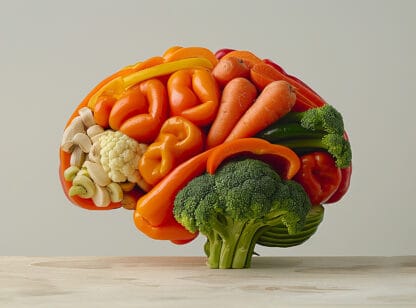Historically, science has relied on an antiquated theory of how genes are physically expressed.1 We presumed that DNA, the blueprint of life, translated information one way-from the double helix strands to the physical body at the cellular level. For decades, this theory instilled the belief that our genetic traits were set in stone. Many feared our genetic makeup, particularly family health history, was our destiny. Today, we can thank the emerging sciences of epigenetics and nutrigenomics for revealing a more empowering truth: we do have control of our genetics and overall health through the management of nutritional choices.
Epigenetics is the study of various external factors that switch parts of the genome “on and off.” A well-known influence on genetic function is low-grade inflammation of the body; however, this was never well understood until 2013.
Exploring previously uncharted territory, a group of genetic researchers from the Norwegian University of Science and Technology (NTNU) suspected this systemic inflammation was a result of dietary choices and released eye-opening findings. Their work identified that the cause of unwanted upregulated genes was related to a high carbohydrate diet (65% of kCal per day).2 According to Berit Johansen, a biology professor at the NTNU, “This [common] type of diet stimulates our genes to initiate the activity that creates inflammation in the body…genes that are involved in type 2 diabetes, cardiovascular disease, Alzheimer’s disease and some forms of cancer respond to diet, and are up-regulated, or activated, by a carbohydrate-rich diet.”
The NTNU research suggested that diet composition is of utmost importance in inflammatory processes and provided recommendations worth noting that may help limit our risk of most lifestyle-related diseases:3
- A healthy diet shouldn’t be made up of more than one-third carbohydrates in each meal.
- A low-carb diet is closer to the right diet, but too low will also cause stress on the body.
- Be mindful that every meal can have an effect on your genetic function.
Most interestingly, it took only six days to change the gene expression of each of the volunteers in the dietary study. Johansen advises, “If you want to reduce your likelihood of lifestyle disease, this new diet will have to be a permanent change.”
Another study published in the journal Pharmaceutical Research in 2008 reported that only 5–10% of all cancer cases can be attributed to genetic defects, whereas the remaining 90–95% are caused by the environment and lifestyle.4 Clearly, we are realizing that our daily choices influence our state of health more than anything else.
Knowing we have control over our health is promising news for those of us who want to be, feel, and even look better. Of course, there are ways to individualize your nutritional intake for further health benefits, as carbohydrate intake is not the only factor to consider when it comes to truly being healthy. An experienced professional can help you to not only analyze your diet, but further identify inflammatory triggers that may also be influencing genetics such as food sensitivities, toxins, and digestive function.
References: 1. https://www.ncbi.nlm.nih.gov/pubmed/1111098 2. https://www.ntnu.edu/news/feed-your-genes 3. http://online.liebertpub.com/doi/full/10.1089/omi.2010.0124 4. https://www.ncbi.nlm.nih.govpmc/articles/PMC2515569/
















































Comments (0)